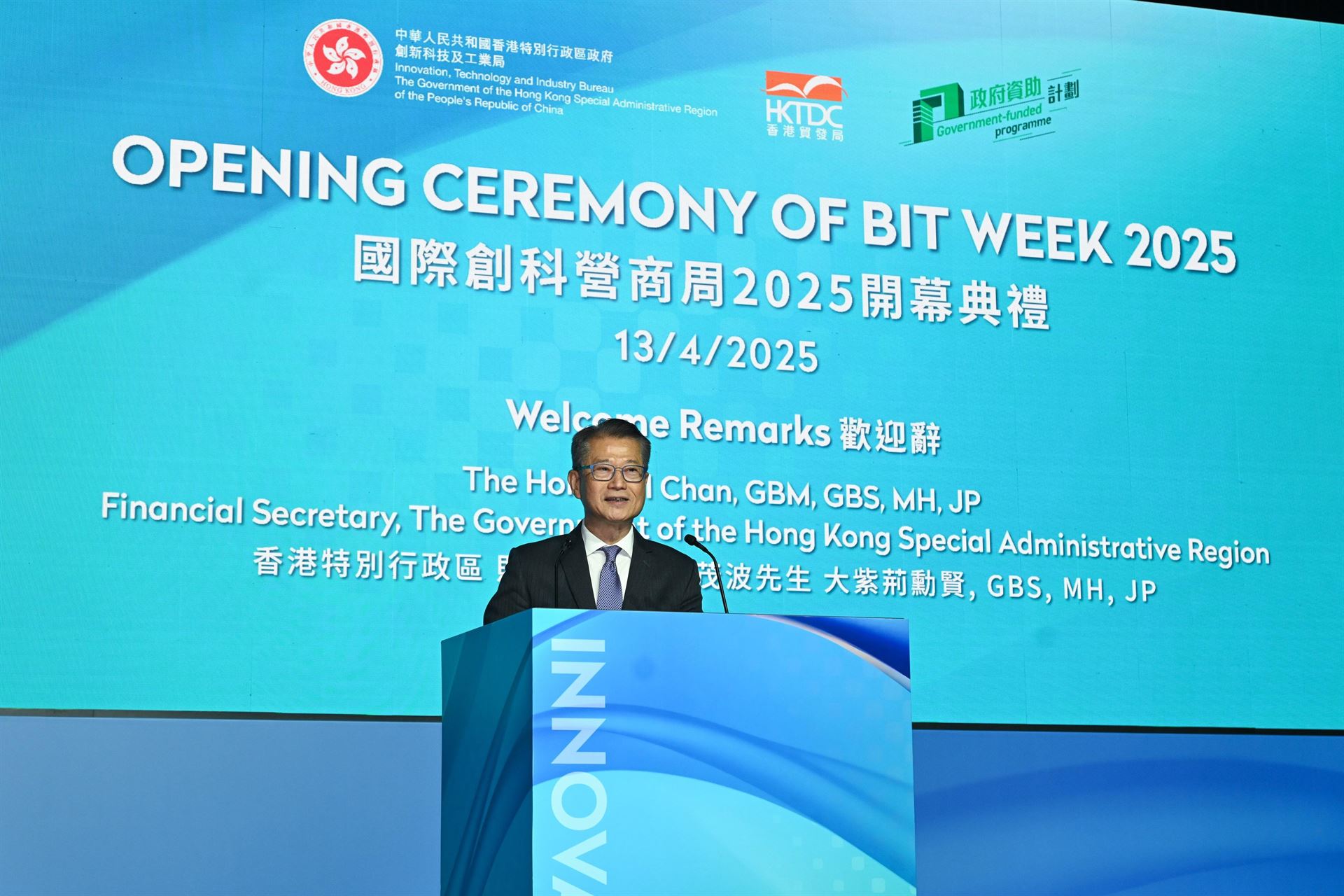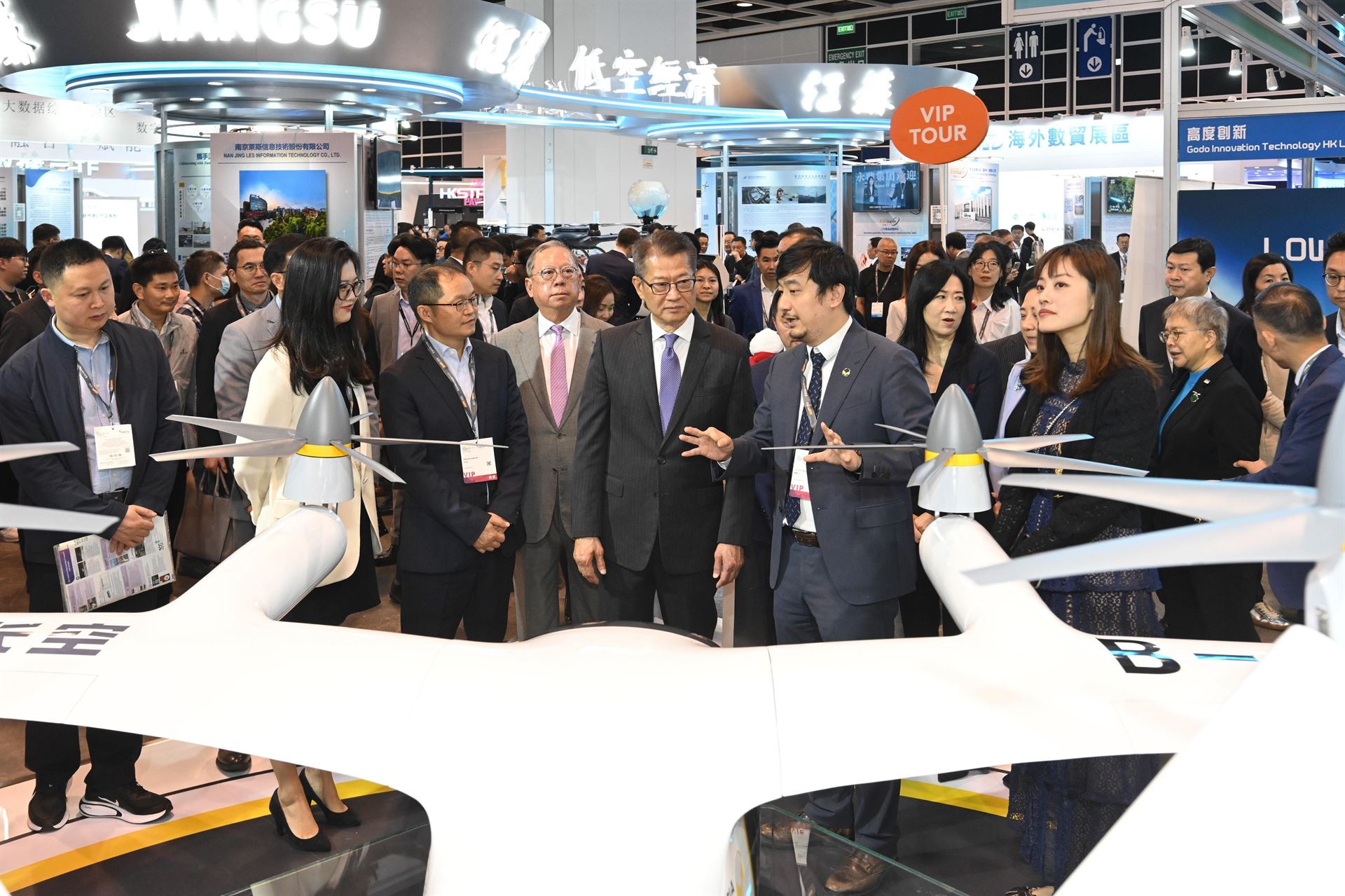
Hong Kong aims to attract more international businesses, investments and talent amid the shifts in global markets and the new demands created, Financial Secretary Paul Chan Mo-po said on Sunday.
Writing in weekly blog, he said the special administrative region has established a dual, secondary listing framework to attract top-tier overseas enterprises seeking to diversify their investments.
Economies worldwide are reassessing the risks associated with United States markets and assets, and exploring investment strategies that could mitigate risks, given the storm brewing in global financial markets due to the additional US tariffs imposed on trading partners, Chan said.
ALSO READ: HKMU’s Elder Academy to empower seniors with AI skills
The finance chief said he has instructed Hong Kong Exchanges and Clearing, as well as the city’s securities watchdog, to prepare and ensure that “Hong Kong must be the preferred listing destination” of overseas-listed Chinese mainland firms seeking to return.
The SAR’s capital market has maintained smooth and orderly operations despite the US-triggered tariff storm, he said.

The local stock market has stabilized following its plunge of more than 13 percent on April 7, with the benchmark Hang Seng Index closing at 20,914 points on Friday -- still higher than its levels seen earlier this year. The average daily trading value had surged to HK$427.6 billion ($55.12 billion) in the past week -- a 68-percent increase from the previous week.
The Hong Kong dollar has also stayed strong and continued to trade favorably against the greenback since last week, suggesting that investors aren’t moving their money out of the Hong Kong market, Chan said.
READ MORE: Hong Kong secures HK$50b investment from strategic enterprises
This shows the effectiveness of the SAR government’s 24/7 cross-market monitoring system amid the volatility in world financial markets. The government will remain on high alert for any potential swings, he added.
Hong Kong’s bourse will also ramp up its outreach to Southeast Asia and the Middle East to get more high-quality firms to go public in the city.

Many international financial institutions and patient capital investors -- those with a high tolerance for risks and a long-term outlook on returns -- are exploring ways to deepen their engagement in the Hong Kong market, Chan said.
Moreover, a growing number of overseas researchers are considering relocating to the SAR, with more tech companies seeing Hong Kong as a strategic base for global expansion.
In his speech at the opening ceremony of the Business of Innovation and Technology Week on Sunday, Chan said: “In these turbulent times, Hong Kong remains open and welcoming to businesses and talent from all over the world.”
READ MORE: SAR govt pledges financial market stability in Hong Kong
A new batch of 18 enterprises from the Chinese mainland, the US and Singapore said last week they’ll set up or expand operations in Hong Kong. Together with 66 other companies, they’re expected to invest HK$50 billion in the coming years and create more than 20,000 jobs locally.
To cushion the blow from trade tensions, particularly for small and medium-sized enterprises, the Hong Kong Monetary Authority, in collaboration with the banking sector, has rolled out supportive measures, such as extending repayment periods for trade loans and allowing repayment installments.
The Hong Kong Export Credit Insurance Corporation has extended free pre-shipment coverage, and cut premiums for exports to emerging markets.
Contact the writer at irisli@chinadailyhk.com


